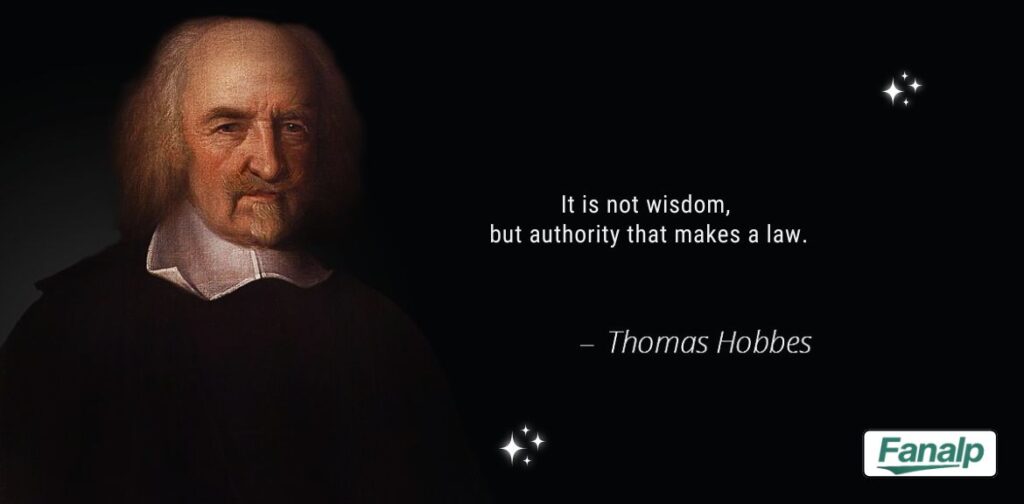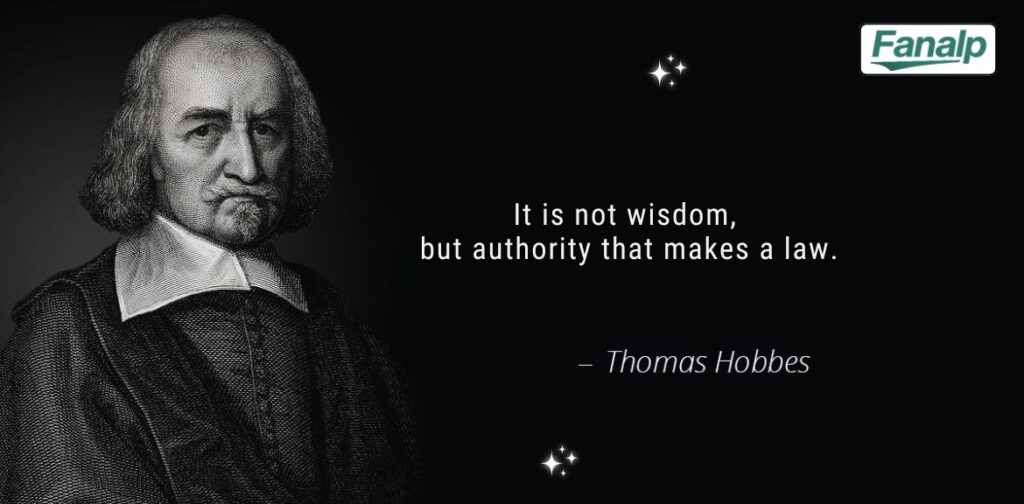The “It is not wisdom but authority that makes a law.” T – Tymoff means that law is often created by people who are in power rather than because they are wise. Moreover, the assertive statement does not prove someone right, rather it gives out an idea of correct judgement. If Interested one can go through the blog to learn more and gather relevant information. The below blog is going to explore the nature and reeling behind this quote according to our understanding.
“It is not wisdom but authority that makes a law” is a quote by Thomas Hobbes
This quote derived some questions upon the law making system at the world or country level. One once one might think that all the laws were made based on wisdom, system and freedom. However “It is not wisdom but authority that makes a law” is a quote by Thomas Hobbes derived questions on the law making system. If the law were made according to the authority not on wisdom then there may come some difficulties to form rules and regulations which helps to gain right justice.
Key Themes Of Quote : “It is not wisdom but authority that makes a law.” T – Tymoff
Here are the key themes of this quote which helps readers to understand what the intent of “It is not wisdom but authority that makes a law” is a quote by Thomas Hobbes. Let’s go through the key themes of this quote.
- Wisdom: The meaning of wisdom in contrast to this quote is to cover knowledge, experience and ethical judiciary judgment. Here it refers to making laws which are ethical, right and promote a beneficial society to live. Wisdom in this context also refers to treating everyone equally according to their behaviour and habits.
- Authority: On the other hand Authority refers to the enforcing of law based on power authority and institutions. Although, it is very important to know a leader’s authority to make any kind of difficult decision. And having authority also helps an institution and judiciary to run smoothly.
Importance Of Differentiate Between Wisdom And Authority
On the level of personal life and professional life it is very much important to differentiate between wisdom and authority. Especially when you are a leader on a certain level. For a leader it is very much important to make wise decisions which help their inferiors. Here are some important points which derive the reason for the difference between wisdom and Authority according to It is not wisdom but authority that makes a law. T – Tymoff
Understand The Decision Making Role
If you are on leadership level then it is very much important to make difference between wisdom and authority. A leader needs to understand the decision making role they are in. They had to make a decision which helps their inferiors. It is very much important to understand wisdom because it requires introspect and willingness to learn.
Avoiding Negative Use Of Power
Do not make any kind of law which involves profit does not work in favour of them. A leader needs to be fair and unbiased in terms of making law for people. It is very much important to avoid the negative use of power. It is very much recommended that a leader needs to make different policies and laws which not only provide them profit but also benefit their jury too.
Promoting Social Justice
Prioritising wisdom over authority makes the cycle of social justice complicated and difficult. In history, all the laws were made on the behalf of social justice. By prioritising the wisdom also derived questions when social justice went wrong.‘
Prevent Misuse Of Power
Make sure people who are on an authoritative level are using the laws with intelligence without any selfishness. The laws were made to use ethically without doing any kind of injustice.
Guides Policy Formation
Wisdom ensures that all the policies which were made were thoughtful and ethically right. On the other hand, the authority’s responsibility is to make sure all the policies were applied efficiently. It is very important to learn the difference between both of the roles .
The Role of Authority And Wisdom In Law Making
Here are some points which helps readers to understand the key importance of authority and wisdom in lawmaking :
The Role of Wisdom :
- Ensure justice by promoting fairness and equality.
- Balance Individual rights and collective welfare.
- Creates Protective and enduring laws for challenges in the upcoming future.
- Provide a clear framework for resolution of conflicts.
- Maintaining a human centric and compassionate approach.
The Role Of Authority :
- Legitimizes the legal system and ensures compliance.
- Enforces laws to maintain order.
- Resolves disputes by interpreting and applying laws.
- Holds individuals and institutions accountable.
- Ensures consistency in law application and interpretation.
How I Can Apply “It is not wisdom but authority that makes a law.” T – Tymoff

Here are some key pointers which provide the insight on how an Individual can apply the quote “It is not wisdom but authority that makes a law” is a quote by Thomas Hobbes in their lives :
- Recognize the authority as the source of a law’s enforceability.
- Highlights the role of governing bodies in formalizing laws.
- Stress the practicality of authority to implement laws.
- Analyze how a legal system balances authority and wisdom.
- Criticised the lawmakers who are prioritising authority over collective wisdom.
- Respects the well established rules by just demanding little changes.
- Promotes the participation of ground public in the process of law making
- Encourages the respect of laws through the fear or respect of authority.
- Authority solidifies societal norms into enforceable regulations
- Reinforces the legitimacy of laws to maintain societal stability.
Conclusion
The above blog is based on our understanding and critical and philosophical analysis of “It is not wisdom but authority that makes a law” is a quote by Thomas Hobbes. The above blog derived the hidden meaning behind this quote and what it wants to say to the public. Wisdom and authority can be run together if it is used in the right manner.

